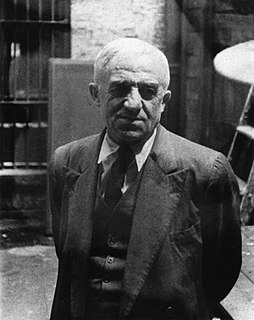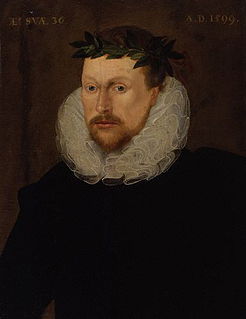A Quote by John Milton
Well observe The rule of Not too much, by temperance taught In what thou eat'st and drink'st.
Related Quotes
What thou lovest well remains, the rest is dross What thou lov'st well shall not be reft from thee What thou lov'st well is thy true heritage Whose world, or mine or theirs or is it of none? First came the seen, then thus the palpable Elysium, though it were in the halls of hell. What thou lovest well is thy true heritage.
When thou cam'st first, Thou strok'st me and made much of me; wouldst give me Water with berries in't; and teach me how To name the bigger light, and how the less, That burn by day and night; and then I loved thee And showed thee all the qualities o' th' isle, The fresh springs, brine-pits, barren place and fertile.
Look what thy soul holds dear, imagine it
To lie that way thou goest, not whence thou com'st.
Suppose the singing birds musicians,
The grass whereon thou tread'st the presence strewed,
The flowers fair ladies, and thy steps no more
Than a delight measure or a dance;
For gnarling sorrow hath less power to bite
The man that mocks at it and sets it light.
This having learnt, thou hast attained the sum Of wisdom; hope no higher, though all the stars Thou knew'st by name, and all th'ethereal powers, All secrets of the deep, all nature's works, Or works of God in heav'n, air, earth, or sea, And all the riches of this world enjoy'dst, And all the rule, one empire; onlyadd Deeds to thy knowledge answerable, add faith, Add virtue, patience, temperance, add love, By name to come called charity, the soul Of all the rest: then wilt thou not be loath To leave this Paradise, but shalt possess A paradise within thee, happier far.































